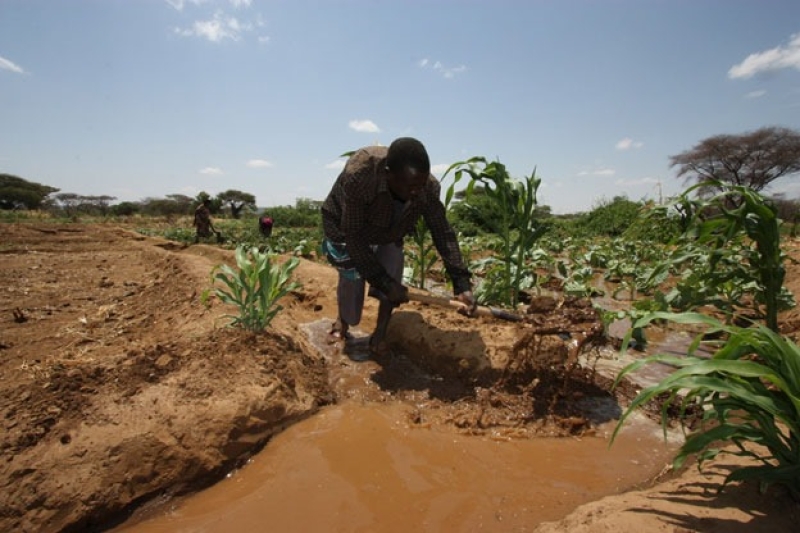- Gold prices hit fresh record in Bangladesh within 24 hours |
- Election to be held on time, Prof Yunus tells US Special Envoy |
- Moscow wants Dhaka to reduce tensions domestically, also with Delhi |
- Saarc experts meet to reduce livestock-origin greenhouse gases |
- Bangladesh Mission in Delhi Suspends Visa Services |
Cop30: A Call for Climate Justice and Structural Reform

In the arid and dry region of Isiolo in Kenya, a new irrigation scheme is helping communities to learn and adopt new ways and to find an alternative to livestock keeping in order to diversify sources of income to attain self-reliance and resilience to recurring droughts.
Three decades after the first Climate COP, the multilateral climate process – which was intended to act as an instrument of justice and a guardian of the planet’s atmosphere – has fallen far short of its goals.
Over the past 30 years, climate change has intensified, while the COP process has become a repetitive bureaucratic exercise that continually fails to hold the biggest emitters to account. It has also become an industry unto itself – and an exclusive one at that.
Without urgent and radical reform to its structure, financial architecture, and participatory mechanisms, the COP will continue to perpetuate the very injustices it was created to address. For poorer and more vulnerable countries – those least responsible for the climate crisis yet most acutely affected – this situation is untenable.
The next 30 years will not be any different from the first 30 unless there is a fundamental shift in three key areas: financial architecture, knowledge sovereignty, and accountability. And the changes need to start now.
First: A new structure for climate finance
Climate finance remains deeply unjust. There is a need for a system that reduces the cost of capital, provides direct access to funds, lowers transaction barriers, and increases grant-based support.
The Loss and Damage Fund must be operationalised with equitable governance and resource distribution. Climate financing plans should include targeted support for adaptation, loss and damage, and energy transitions aligned with energy sovereignty and green industrialisation. Climate finance must be viewed not merely as a financial commitment, but as a tool for justice.
The cost of participating in COP is also extremely high. Many negotiators from Africa’s least developed countries rely on external funding just to attend. Civil society participants face prohibitive costs simply to observe or challenge injustice. In Belém, hotel prices are reportedly reaching $900 per night – equivalent to the cost of a modest climate adaptation project in a rural African community. An African Participation Fund could ensure that representation is not determined by wealth.
Second: Knowledge sovereignty
Climate data and science shaping global policy are still overwhelmingly produced in the Global North. As a result, African negotiators must rely on external research institutions for climate models and risk assessments. This undermines independent advocacy.
Africa must invest in local research institutions, Indigenous knowledge systems, and South-South collaboration. Building regional climate data infrastructure and technical research capacity is critical. Strengthening climate diplomacy skills and integrating African expertise directly into COP processes will ensure more equitable participation.
Third: Accountability
Robust monitoring and reporting frameworks, such as the African Climate Finance Taxonomy and the Africa Climate Finance Strategy, are needed to guard against greenwashing and ensure transparency. These tools should define what constitutes climate-aligned investment and ensure that finance supports projects that meet both climate and local development priorities.
Enforceable commitments, with clear timelines and consequences for non-compliance, are essential to rebuilding trust and ensuring accountability from developed countries.
As the world approaches COP30 and beyond, calls for urgent, empathetic, and authoritative action must lead to tangible change in climate finance, knowledge sovereignty, and accountability. Incremental change is no longer enough. Transformation is necessary – for climate justice, and for Africa.
— Martha Bekele is co-founder and Director at DevTransform; Dr Nkiruka Chidia Maduekwe is an Associate Professor of Law at the Nigerian Institute of Advanced Legal Studies and a former lead climate negotiator for Nigeria.

